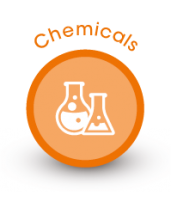
CoPro: Planning and scheduling of make and pack processes
The Problem
- Scheduling optimisation for companies from the consumer goods industries, such as P&G, is a challenging task due to the continuously increasing demand, tight operating constraints and the large variety of similar products.
- Efficient models are missing to derive nearly optimal solutions that minimise the changeover times, which causes production down times and an unnecessary use of resources.
The Solution
- Optimisation-based solutions were developed for the scheduling problem of the current plant layout at P&G, in a collaboration between CERTH and P&G. A significant reduction in the total changeover time was achieved.
- Scheduling of a flexible plant layout was studied in a cooperation of TUDO and P&G. In this layout, the production and packing stages are decoupled, enabling a higher utilisation of the different lines but making the scheduling problem even more complex.

The goal of the CoPro project was to develop and to demonstrate methods and tools for process monitoring and optimal dynamic planning, scheduling and control of plants, industrial sites and clusters under dynamic market conditions, to provide decision support to operators and managers and to progress to automated closed-loop solutions to achieve an optimally energy and resource efficient production.
CoPro brought together 17 partners from 8 EU countries, including 5 industrial end users and 6 technology providing SMEs. The project developed solutions for the plant-wide optimisation of large plants, for balancing production and consumption in industrial parks for industrial symbiosis, and addressed power plant scheduling and demand-side response. It further developed online data analytics for anomaly detection, and decision support for plant operators and managers. The solutions can be integrated into the IT infrastructure of the plants via an integration platform that supports the connection to different IT systems. CoPro developed model libraries for the efficient development of advanced optimisation-based solutions and techniques and software for hybrid modelling and model management.
The developments of CoPro were motivated by and applied to challenging use cases from different sectors of the process industries:
- (Petro-)chemical production;
- Cellulose fiber production;
- Production, formulation and packaging of consumer goods;
- Sterilisation and packaging of food.
CoPro demonstrated that significant savings of energy and resources are possible by using advanced technologies for monitoring, decision support, optimisation, and planning and scheduling.





